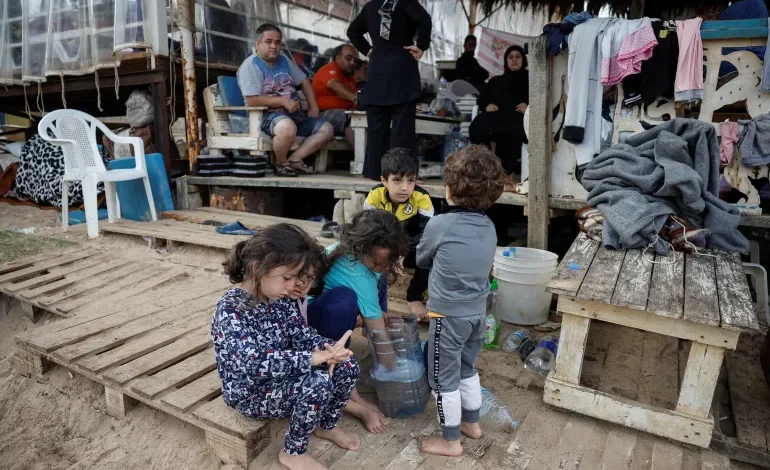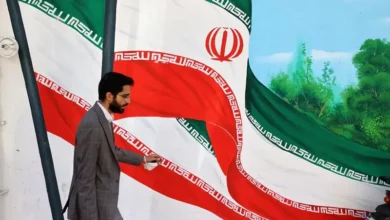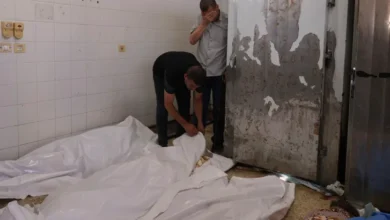‘We are all the same’: Lebanese come together to feed those forced to flee

At Nation Station, a communal kitchen in the Geitawi neighbourhood, volunteers move to and fro, stacking food on a table.
Behind them, others stir meat, cook rice or chop lettuce while trading small talk.
“Fifty meals!”, one of the volunteers shouts out to his comrades, noting a benchmark.
They return the enthusiasm with a communal cheer, without breaking from their tasks.
The volunteers in the petrol station-turned-communal kitchen are working to prepare meals to be delivered to shelters for people who have been forced to flee their homes.
One million displaced
Before Israel began relentlessly bombarding Lebanon’s south, Bekaa Valley in the east and Beirut’s southern suburbs on September 23, more than 110,000 people had already been displaced from their homes in southern Lebanon during the 11 months of cross-border attacks.
Last Monday’s escalation forced many more to flee and the situation became even more dire on Friday when Israel levelled an entire block in a southern suburb of Beirut while assassinating Hezbollah’s Secretary-General Hassan Nasrallah and other officials from the group.
The Israeli army then demanded that large parts of Beirut’s suburbs, already reeling from the previous week’s attacks, evacuate.
In the days that followed, Prime Minister Najib Mikati said as many as one million people, or about one-fifth of the country’s residents, were displaced.
Lebanon’s Ministry of Education designated a number of schools as temporary shelters for the displaced, while the occupancy of hotels and rented apartments spiked.
But beyond that, the Lebanese state’s capacity is limited.
The country is in its fifth year of a devastating economic and banking crisis, which experts largely blame on the ruling political class.
Picking up the slack
In the space where the government, the United Nations or international NGOs fall short, initiatives like Nation Station fill the gaps.
“Nation Station started the day after the August 4th explosion in 2020,” Josephine Abou Abdo, the cofounder of Nation Station, told Al Jazeera.
“We responded to emergency needs back then and since the Israeli aggression on Monday, we’ve cooked meals for those in need.”
The volunteers cook breakfast, lunch and dinner for the displaced people, to be delivered to the shelters.
In total, they make 700 portions of food daily. To make so many meals is taxing and Abou Abdo says the group is actively seeking volunteers to help feed the displaced.
Others who aren’t part of initiatives like Nation Station have also stepped up, taking families into their homes, donating blood, or distributing water to people stranded on the highways.










